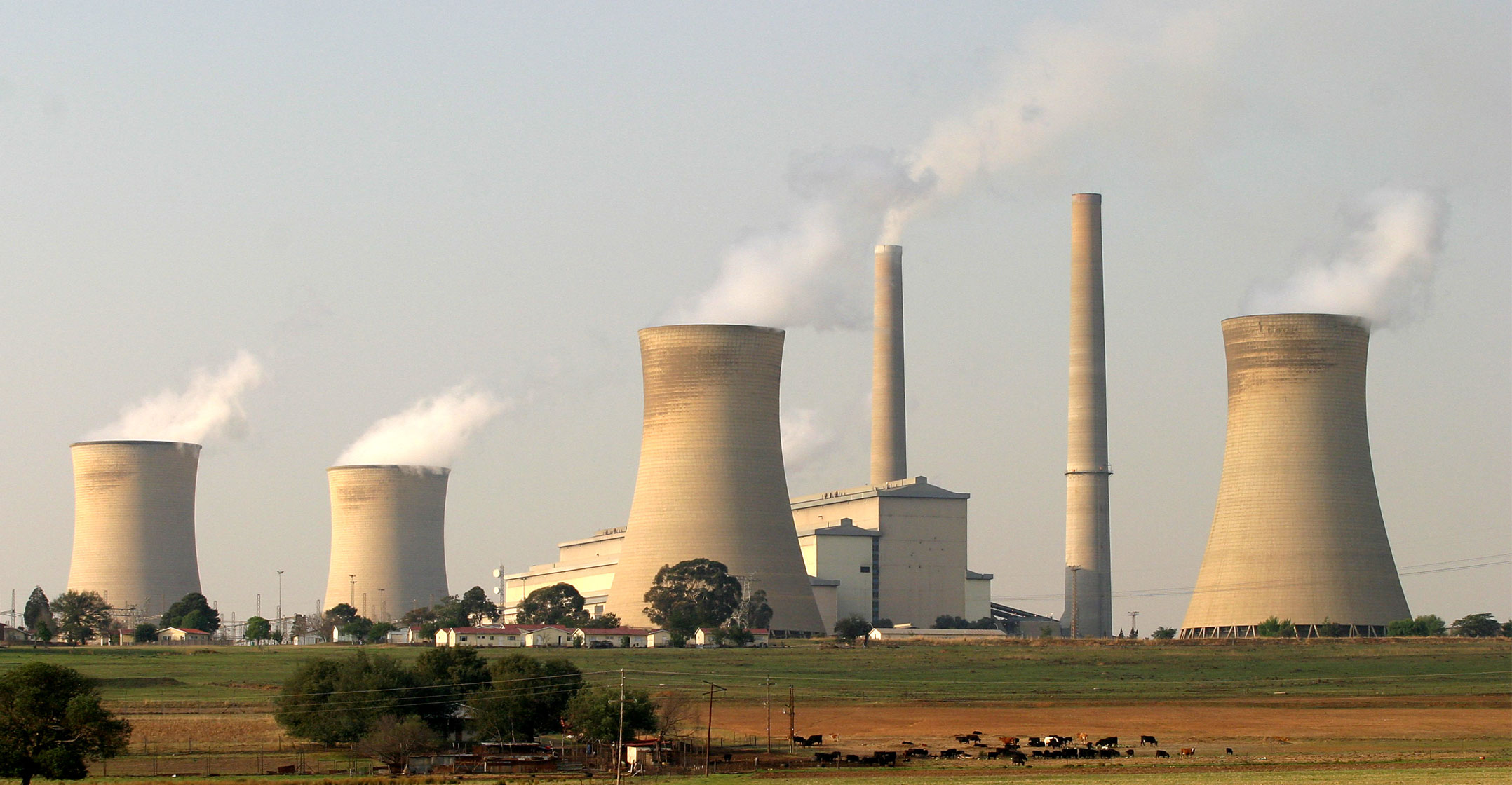
Debt and corruption scandals at Eskom make the utility the biggest risk to South Africa’s economy and the government needs to replace its management, Goldman Sachs Group has said.
Eskom plans to raise almost R340bn in the next five years, while meeting R413bn of interest and debt repayments, which amount to 8% of South Africa’s GDP. The utility is caught up in allegations of corruption related to contracts it signed with companies linked to the Gupta family, who are friends of President Jacob Zuma. It’s also without a permanent CEO and has suspended its finance director. Zuma and the Guptas deny any wrongdoing.
“We are having discussions on solutions,” Colin Coleman, a partner of Goldman Sachs and head of sub-Saharan Africa, said in an interview in Johannesburg on Thursday, without elaborating. “Government has to put the governance in place and clean it out. It needs a permanent credible, independent non-conflicted chairman and a credible board and from that, credible managers.”
The New York-based lender in 2015 provided informal advice to the South African government on the sale of state assets to raise money for Eskom and proposals on how to improve the utility’s cash flow, people familiar with the matter said at the time.
Eskom faces lower demand, with South Africans last year using the least amount of electricity generated by the company in more than a decade. The utility is also spending billions of dollars on new power plants that are years behind schedule and over budget. The company disclosed R3bn of irregular expenditure in its financial results on 20 July, a figure which its auditors said they couldn’t independently confirm.
“Eskom is the biggest single risk to the South African economy,” Coleman said. “If you strip out corruption and sort out procurement, I’m sure there are efficiency gains there. There are self-help initiatives that can deliver a company that’s a lot more efficient. You’ve got to incentivise efficiency.”
Budget deficit
The South African government, which saw its budget deficit widen to R92.2bn in July, is hamstrung by an economy that’s barely growing, political infighting, and losses at other state-owned companies such as South African Airways. Two ratings agencies cut South Africa’s foreign debt to junk in April, citing the firing of former finance minister Pravin Gordhan at the end of March and poor governance at state-owned enterprises.
Eskom, which has used R218.2bn in government guarantees, hasn’t held a public auction for its debt in South Africa since 2014.

The power utility is confident it can reduce its dependence on the government by targeting funding sources that do not require explicit guarantees, the power utility said in an emailed response to questions.
“Eskom continues to access various debt markets, which include funding from development finance institutions, domestic and international bond issuances, funding supported by export credit agencies as well as short-term commercial paper bill issuances,” the company said.
The company’s “huge maturity profile” means it’s going to have to roll over its debt, said Bronwyn Blood, a fixed-income portfolio manager at Granate Asset Management in Cape Town. “The government doesn’t have the capacity to guarantee more” of Eskom’s debt even though investors won’t be comfortable without state backing because of the company’s leadership and governance challenges, she said.
On top of helping out Eskom with a R23bn bailout in 2015, national treasury has also had to inject cash into the national airline and broadcaster. The government has provided guarantees that amount to 42% of the country’s R1.14 trillion rand in tax revenue. This is increasing the risk that the government may need to force pension funds into buying its debt, said Peter Attard Montalto, chief emerging markets economist at Nomura International in London.
The idea that pension funds invest a prescribed amount of their assets in state debt was mooted as far back as 1994 by South Africa’s first black president, Nelson Mandela. It came up for discussion again when the ANC held its national policy conference in July. While no decision was made, the ANC will probably use its elective conference in December to firm up a policy on prescribed assets, although it is unlikely to introduce the measures until after national elections in 2019, Montalto said.
South Africa last forced pension funds to buy its debt during apartheid, which ended in 1994, when international investors shunned the country because of its racial-segregation policies. Spokespeople at national treasury and the ANC didn’t respond to requests for comment.
“The worst case scenario for us would be prescribed assets,” Granate’s Blood said. “There are dark days ahead at Eskom and there needs to be a dramatic turnaround. Government will turn to prescribed assets before Eskom defaults, but it will be detrimental.” — Reported by Renee Bonorchis and Paul Burkhardt, (c) 2017 Bloomberg LP




